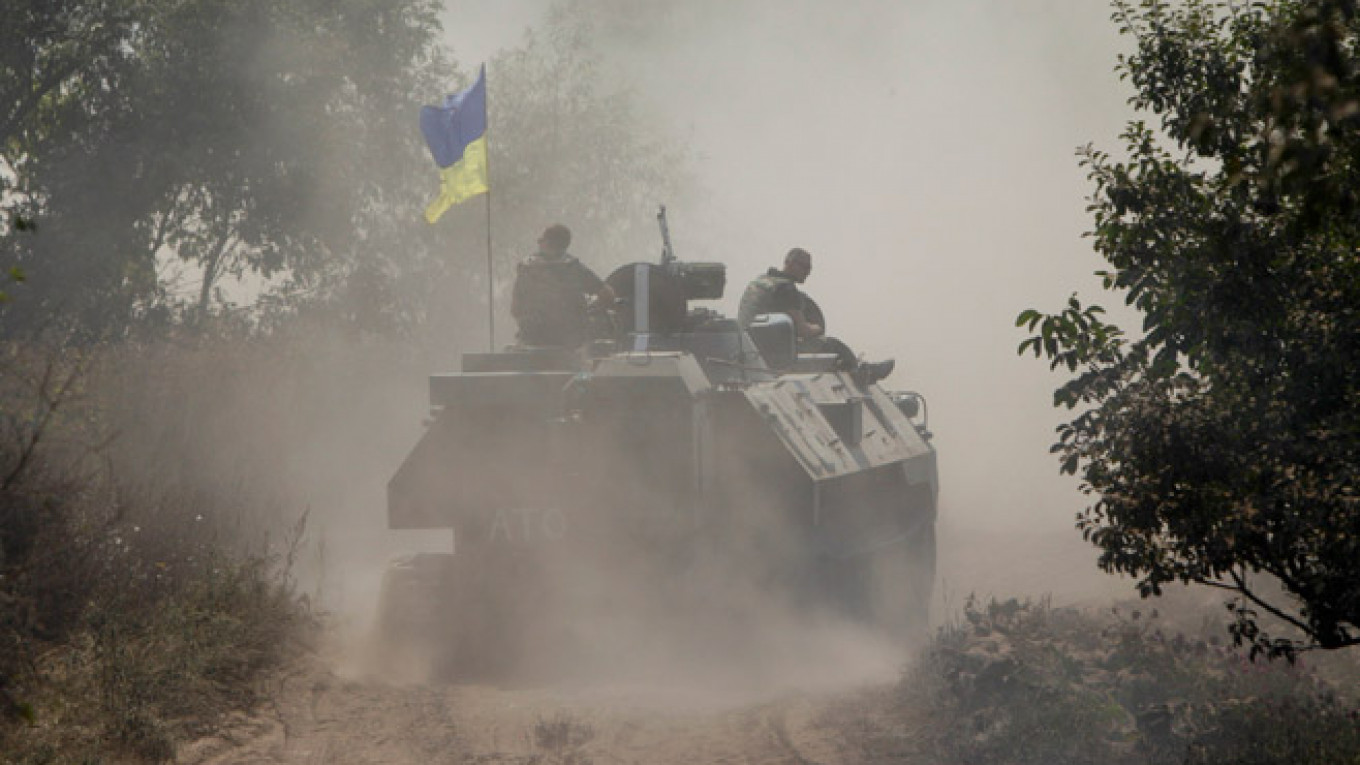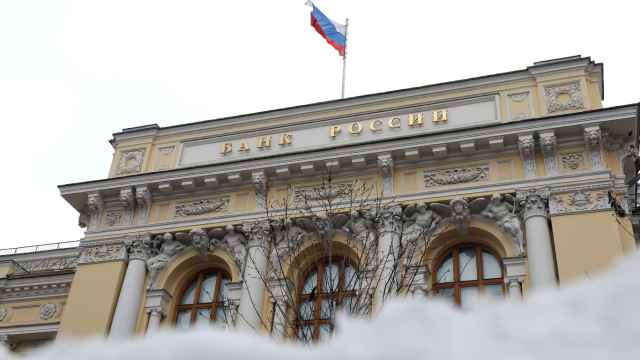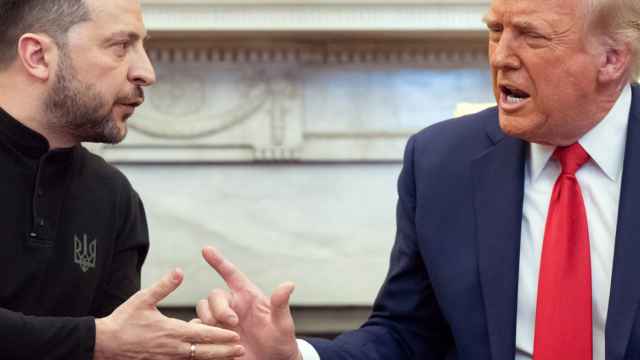After “little green men” took control of Crimea’s parliament in February in the first stage of Moscow’s annexation of the peninsula, U.S. diplomats spoke of finding an “off ramp” for Vladimir Putin to stop him going further. Yet there was no indication of what could persuade him to act otherwise.
The Kremlin saw Kiev's Maidan revolution as the latest Western attempt to pull Ukraine away from Russia. To a visibly furious Russian president, the logic of revenge appears to have been compelling, regardless of the consequences.Revenge, though, has so far been an unprofitable strategy. The insurgency in eastern Ukraine, instigated by Moscow, has been a spectacular failure, serving only to show the lack of broad support for separatism in while simultaneously uniting much of the rest of the country against Russia
At the same time, the Kremlin's relations with its Western partners have suffered a precipitous deterioration, culminating in economic sanctions that are highly damaging for Russia. Moscow’s policies in support of federalization in Ukraine even have the potential to provoke separatism within the Russian Federation itself.
If ever an "off-ramp" were needed for Putin, it is now.
Unless he and his siloviki advisers can find a face-saving means to reverse his current policies toward Ukraine, Putin will stay locked into the logic of escalation, risking the need to commit ground forces to counter the Ukrainian army's advances. Having released a wave of nationalist, patriotic emotion in Russia, Putin's main difficulty is that he cannot afford to lose or, at least, be seen to lose.
Actually invading Ukraine, though, would be a high-risk move. Much as he may believe he can rally the nation behind him against what can be portrayed as the latest Western aggression against Mother Russia, support could start to crumble if large numbers of Russian soldiers lose their lives fighting a brotherly nation. Against a background of declining living standards, Putin would have good reason to worry about the security of his system.
A safer approach for Putin is to try to freeze the conflict in eastern Ukraine and use economic instruments to bring Kiev to the negotiating table.
The security of gas supplies for Ukraine and the European Union this coming winter is about to rear its head again and may provide fresh impetus for Russia and Ukraine to resolve their differences.
Negotiations between Moscow and Kiev on the price for Ukraine's gas imports from Russia remain deadlocked, with Ukraine not currently buying gas from Russia. This is not a sustainable position for either side because Russia needs to guarantee flows of gas through Ukraine to its European customers while Ukraine requires sufficient gas to survive the winter. Neither side has a feasible alternative.
But although Putin will undoubtedly want to use the gas issue to Russia's advantage, it also provides an opportunity for the EU to bring Kiev and Moscow to the table since all parties have a strong vested interested in ensuring reliable deliveries of gas. The standoff between Moscow and Kiev on gas needs to be resolved as part of a broader settlement of the Russia-Ukraine conflict.
First, Russia prevails on separatist forces to halt the insurgency in return for an end to Kiev's anti-terrorist operation and guarantees of stronger representation of the eastern regions in government, including direct elections of governors and increased regional autonomy. Kiev can do nothing less, in any case, if it is to provide the population of the east of Ukraine with a future.
Second, Kiev commits not to pursue NATO membership without the support of an overwhelming majority of the population. In return, Moscow drops its objections to Ukraine pursuing its relationship with the EU and agrees not to impede the implementation of the EU association agreement. It also agrees to charge Ukraine a fair price for its gas without special discounts that can be withdrawn arbitrarily.
Third, Kiev guarantees continued protection of the Russian language in Ukraine with preservation of some elements of the 2012 language law that made it an official language in the south and east of the country. Again, Kiev will have little to lose on the issue of language since it needs to show a degree of flexibility to Russian speakers in the east in order to secure their loyalty.
In short, there is space for Russia and Ukraine to agree on a deal that does not undercut Kiev's sovereignty while also allowing Putin to show to a Russian audience that he has achieved his aims.
In turn, Kiev has every reason to want to stabilize relations with Russia and prevent the establishment of a "frozen conflict" in the east of the country.
Of course, Putin is not a man who believes in win-win outcomes. But faced with the prospect of being seen in Russia to have lost his battle with the West over Ukraine, he cannot be insensitive to the increasingly urgent need to change his game plan and find a way out.
The United States inadvertently provided Russia with an opening in Syria over chemical weapons that Putin exploited to the fullest. Western countries now need to make a clear and conscious effort to show Putin an exit from Ukraine and prevent a further serious escalation of the crisis.
John Lough is an associate fellow with the Russia and Eurasia program at Chatham House.
A Message from The Moscow Times:
Dear readers,
We are facing unprecedented challenges. Russia's Prosecutor General's Office has designated The Moscow Times as an "undesirable" organization, criminalizing our work and putting our staff at risk of prosecution. This follows our earlier unjust labeling as a "foreign agent."
These actions are direct attempts to silence independent journalism in Russia. The authorities claim our work "discredits the decisions of the Russian leadership." We see things differently: we strive to provide accurate, unbiased reporting on Russia.
We, the journalists of The Moscow Times, refuse to be silenced. But to continue our work, we need your help.
Your support, no matter how small, makes a world of difference. If you can, please support us monthly starting from just $2. It's quick to set up, and every contribution makes a significant impact.
By supporting The Moscow Times, you're defending open, independent journalism in the face of repression. Thank you for standing with us.
Remind me later.







